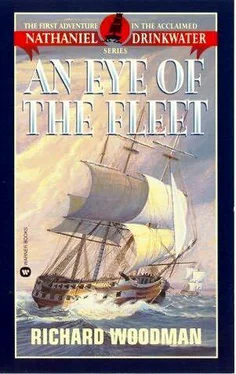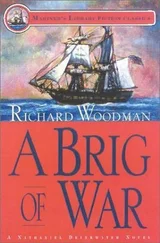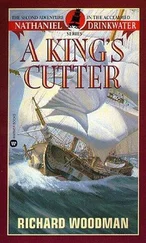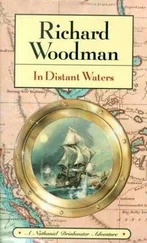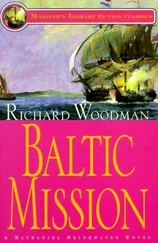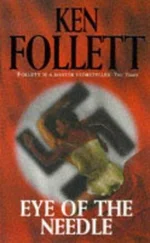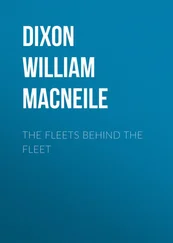Richard Woodman - An Eye of the Fleet
Здесь есть возможность читать онлайн «Richard Woodman - An Eye of the Fleet» весь текст электронной книги совершенно бесплатно (целиком полную версию без сокращений). В некоторых случаях можно слушать аудио, скачать через торрент в формате fb2 и присутствует краткое содержание. Жанр: Морские приключения, Исторические приключения, на английском языке. Описание произведения, (предисловие) а так же отзывы посетителей доступны на портале библиотеки ЛибКат.
- Название:An Eye of the Fleet
- Автор:
- Жанр:
- Год:неизвестен
- ISBN:нет данных
- Рейтинг книги:3 / 5. Голосов: 1
-
Избранное:Добавить в избранное
- Отзывы:
-
Ваша оценка:
- 60
- 1
- 2
- 3
- 4
- 5
An Eye of the Fleet: краткое содержание, описание и аннотация
Предлагаем к чтению аннотацию, описание, краткое содержание или предисловие (зависит от того, что написал сам автор книги «An Eye of the Fleet»). Если вы не нашли необходимую информацию о книге — напишите в комментариях, мы постараемся отыскать её.
Tells of the rise in the 1780s of Nathanial Drinkwater to the rank of Lieutenant in the Navy. Prior to promotion he saves a young seaman from the brutal attentions of a depraved midshipman and in the process, wins the love of a parson's daughter.
An Eye of the Fleet — читать онлайн бесплатно полную книгу (весь текст) целиком
Ниже представлен текст книги, разбитый по страницам. Система сохранения места последней прочитанной страницы, позволяет с удобством читать онлайн бесплатно книгу «An Eye of the Fleet», без необходимости каждый раз заново искать на чём Вы остановились. Поставьте закладку, и сможете в любой момент перейти на страницу, на которой закончили чтение.
Интервал:
Закладка:
Cranston put the longboat off before the wind and headed for the Galuda estuary. He was certain the stranger was La Creole …
The sun had almost reached its zenith when they came upon the mill. It was another weatherboard edifice and indicated the presence of human habitation since the farther trail was better cleared and recently trod. Nevertheless it was deserted despite a partially-filled sack of flour and a dumped cartload of Indian corn.
'That's been left in a deuced hurry,' said Wheeler pointing to the pile.
'Very perceptive,' said Devaux annoyed that, just as it seemed he would have his way and return, they were going to find people.
'D'ye think they fled at our approach?'
'I don't know…' said Devaux flatly.
'Shall we feed the men before proceeding further, for I don't like this.' Wheeler's confidence was shaken for the first time. Devaux noted this and pulled himself together. He was in command of the party. First they'd eat and then decide what was to be done.
'D'ye attend to it, Wheeler, and a couple of men at the top of the mill will set our minds at ease, eh?'
'Aye, aye,' answered the marine officer, biting his lip with chagrin that he had overlooked such a very elementary precaution.
The men settled to another meal of dried biscuit and water. They lay in languid poses scratching themselves and grumbling irritably. Having posted his sentinels Wheeler flung himself down in the shade.
All morning Drinkwater had toiled on in the heat trying desperately to forget the events of the night before. But his testicles ached and from time to time the gorge rose in his throat. He choked it manfully down and avoided all contact with Morris. Sharples swung along with the seamen, a benign smile on his face. Drinkwater was filled with the overwhelming sense of relief when they lay down in the shade of the mill. He closed his eyes and drifted into semi-consciousness.
Then the rebel horse were on them.
The raiders swept into the clearing in a sudden thunder of hooves and dust and the sparkle of sabres. Most of the British were caught lying prone. Surprised in the open the seamen were terrified at the appearance of horses. The flying hooves and flaring nostrils were unfamiliar and horrifying to these men who gave their lives without protest in the claustrophobic darkness of a gun-deck. They defended themselves as best they might, stark terror adding to their confusion.
Wheeler and Devaux came to their feet blaspheming.
'To me, sergeant! Oh, Christ Jesus! To me sergeant, damn you!' The marines began to fight their way through to the base of the mill, coalescing in little groups to commence a methodical discharge of musketry.
The general melee lasted ten long minutes in which a third of the seamen had been cut down and there was scarce a man in the entire force who had not received a cut or graze.
Drinkwater leaped up with the rest. He had brought a cutlass with him and lugged it out, its clumsy unbalanced blade awkward to his hand. A man on a bay plunged towards him. Drinkwater parried the blow but the impetus of the horse threw him over and he rolled to one side to avoid the hooves. A pistol ball raised dust by his head as he struggled to his feet again. Weakness overcame him and he was filled with the overwhelming desire simply to lie down. He rolled on to his back, half submitting to the impulse. A man ran past him with a musket. He dropped to one knee and fired at the horseman, now turning to make another pass. It was Sharples. He discharged the musket and half dragged Drinkwater closer to the mill. The horseman swerved and rode off to attack four seamen fighting back to back and already going down before the slashing sabres.
Drinkwater got to his feet. He saw Devaux and Wheeler with a group of men forming a defensive group. He pointed and Sharples nodded. Suddenly another man had joined them. It was Morris. He pushed Drinkwater who staggered back against the mill. Sharples turned and thrust the barrel of his musket between them. Morris fired his pistol and Sharples doubled over, a great hole in his chest. Drinkwater was dazed, his vision blurred. He comprehended nothing.
Another horseman rode up and slashed at them. Morris turned away, running round the corner of the mill. The horseman followed. Drinkwater took one brief look at Sharples. He was dead.
He looked up again, the little group round the two lieutenants had grown. In a blind panic he put down his head and ran, dodging among the whirling sabres and stamping horses' legs with animal instinct.
The rebel cavalry had played out their advantage of surprise. Used as they were to attacking lonely farms or ambushing parties of raw Tory militia the horsemen were used to speedy and uncontested victory. Having fought the intruders for some minutes the surviving seamen steadied. Devaux was among them his teeth bared in a snarl of rage. They began to rally, their cutlasses slashing back at the horses or the riders' thighs, concentrating on the bright red spot which, through the swirling dust, marked where the marines were forming a disciplined centre of resistance.
The American officer felt his squadron's will to fight was on the ebb. Seeking to rally his force he yelled out: 'Tarleton's quarter, my lads! Give the bastards Tarleton's quarter!' This reference to the leader of the British Legion, a force of Loyalist Americans under British officers, who let not a rebel escape them if they could help it, had its effect and they renewed their attack. But the resistance of the British was now established and the Americans gradually drew off, reining in their steaming horses just out of short musket range.
Slowly the dust subsided and the two contending parties glared at each other across a no-man's-land of broken bodies and hamstrung horses. Then the enemy wheeled their mounts and vanished into the trees as swiftly and silently as they had come.
The news of the arrival of La Creole off the Galuda came as no surprise to Hope. On receiving Cranston's intelligence the captain ordered Skelton to the mainmast cap to watch the enemy privateer. It was with some relief that the lieutenant reported that La Creole had stood offshore towards the late afternoon thus buying valuable time for the British. Why she had done so Hope could only guess, possibly the enemy commander wanted time to make preparations, perhaps he did not think he had been observed and wished to make his attack the following day. Perhaps, and Hope hardly dare believe this, perhaps Cyclops had not been spotted and La Creole was working her patient way southward still searching. At all events the captain was too old a campaigner to worry when fate had dealt him a card he did not expect.
The appearance of La Creole enabled him to make up his mind in one direction. He would recall Devaux and the landing party immediately. The indecision that had manifested itself earlier and annoyed Devaux was gone now for it had been caused, not by senility, but lack of faith in his orders. Hope ordered the garrison of Fort Frederic to be withdrawn and the frigate's defences strengthened against a night boat attack.
At a conference of officers he called for a volunteer to take the message of recall to Devaux. The pitifully small group of officers regarded the silent forest visible through the stern windows with misgiving.
'I'll go,' said Cranston at last.
'Well done, Mr Cranston. I shall endeavour to do everything possible for you for such a service. Will no one else support Mr Cranston…?'
'There's no need, sir. I'll take the blackamoor.'
'Very well, you may draw what you require from the purser and small arms from Lieutenant Keene. Good luck to you.'
The officers shuffled with relief at Cranston filling such a dangerous office. When they had gone Hope poured himself a glass of rum and wiped his forehead for the thousandth time that day.
Читать дальшеИнтервал:
Закладка:
Похожие книги на «An Eye of the Fleet»
Представляем Вашему вниманию похожие книги на «An Eye of the Fleet» списком для выбора. Мы отобрали схожую по названию и смыслу литературу в надежде предоставить читателям больше вариантов отыскать новые, интересные, ещё непрочитанные произведения.
Обсуждение, отзывы о книге «An Eye of the Fleet» и просто собственные мнения читателей. Оставьте ваши комментарии, напишите, что Вы думаете о произведении, его смысле или главных героях. Укажите что конкретно понравилось, а что нет, и почему Вы так считаете.
